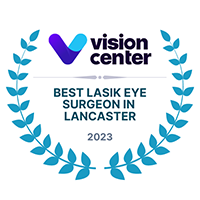Regardless of your age or physical health, routine eye exams are important. At a routine eye examination, the overall health of your eyes will be evaluated. Vision screenings are limited eye tests that can help identify potential vision problems but a vision screening is not a substitute for a comprehensive eye exam performed by a Board Certified Optometrist or Ophthalmologist.
Before you are seen
Plan to bring your current eyewear and/or a box of contact lenses for each eye showing your prescription on the label. You should also bring your insurance cards to your appointment. Understanding your insurance benefits is important prior to your routine eye exam as well.
Be sure to schedule an eye exam as soon as possible if you have any of the following:
- Changes in vision
- Blurred or fuzzy vision
- Eye pain or strain
- Extreme or recurring headaches
- Seeing black or gray spots
In addition to the comprehensive eye examination, your doctor will discuss additional treatment if needed. An optometrist can determine if you should be seen by an ophthalmologist.
During the exam
If necessary, you’ll receive a prescription for eyeglasses. When you are seen for a contact lens exam, all of the evaluations that you get with an eye exam for eyeglasses are included. Additional diagnostic information is gathered at the appointment that indicates what contact lenses are right for you.
You’ll receive a trial pair of contact lenses if you are prescribed contacts, and must return for a follow up exam to evaluate how you are seeing, and how well the contact lenses fit your eyes. Contact lens prescriptions can be released once the doctor determines that the contact lenses are a good fit for you.






